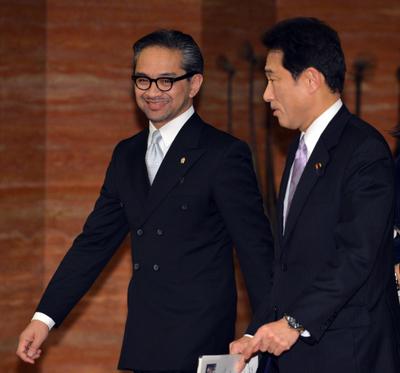As sweet as the victory will be for Abe personally, the biggest cause for celebration is that Japan is pulling itself out from the political quandary that has divided the country since 2007. Control of the lower and upper houses will give the Abe administration the legislative support and legitimacy to put into action its legislative agenda. Attention is now turning to the question of which direction Abe will lead Japan.
High on Abe’s agenda is revising the Constitution. His first target will be revising Article 96, to lower the threshold of Diet approval to amend the Constitution from two-thirds to a 50 per cent majority. It is far from certain whether the LDP will secure the commanding majority needed to amend the Constitution for the first time since it was enacted in 1947. If Abe succeeds he would pave the way for his ultimate prize: amending the erstwhile sacrosanct Article 9.
While efforts to revise the Constitution, especially Article 9, may appeal to certain quarters within Japan, revision would cause unnecessary complications for Japan’s relations with its Asian neighbours. It would trigger an avalanche of protest and condemnation from China and South Korea, and some ASEAN states. It would be foolhardy for Abe to use his hard-fought political capital to further what some in Japan and elsewhere see as a nationalist agenda.
Abe’s real goal should be to ensure the ‘Three Arrows’ of Abenomics hit the economic bull’s eye. Nothing is more important than revitalising and strengthening the nation. The government must urgently address issues like energy security, the competitiveness of Japanese exports and deflation. At the same time, Tokyo can ill-afford to be singularly inward looking. It is in Japan’s interest to ensure that the strengthening of its relations with ASEAN remains a priority.
Japan’s regional profile has been in the decline since the 1990s. Its economic woes caused blossoming relations with ASEAN to wither prematurely. As Tokyo struggled during the ‘lost decades’, ASEAN fell into the embrace of China’s charm diplomacy. China is now ASEAN’s top trade partner and overtook Japan as the region’s largest economy in 2010. This economic stagnation has had a direct effect on Japan’s diplomacy and as a result it has lost ground to China in people-to-people diplomacy. While the Japan Foundation’s budget has been under the knife in the past few years, China has established a network of Confucius Institutes across Southeast Asia.
While losing the status of number one economic power in the region is a blow to the Japanese psyche, it is by no means a fatal blow. Japan’s interest would be irreparably harmed if Tokyo allows its diplomatic footprint to fade even further. Japan needs to put in the ‘face time’ and to ‘show up’ in the region. Abe’s visit to Malaysia, the Philippines and Singapore at the end of the month is a step in the right direction. But Japan needs to do more to make up for lost time.
The solution is for Japan to put ASEAN at the centre of its diplomatic strategy. If Japan continues its lacklustre engagement with ASEAN, it may well find itself overshadowed by other major powers — such as China and the United States — that have unabashedly sought to woo ASEAN in earnest. Japan’s stake in ASEAN is not limited to securing business deals and market share. The more important goal is to remain relevant. To do so, Japan must be part of ASEAN’s strategic and political calculations.
On this score, the Abe administration has its work cut out.
Dr Tang Siew Mun is Director (Foreign Policy and Security Studies) at the Institute for Strategic and International Studies, Malaysia.

